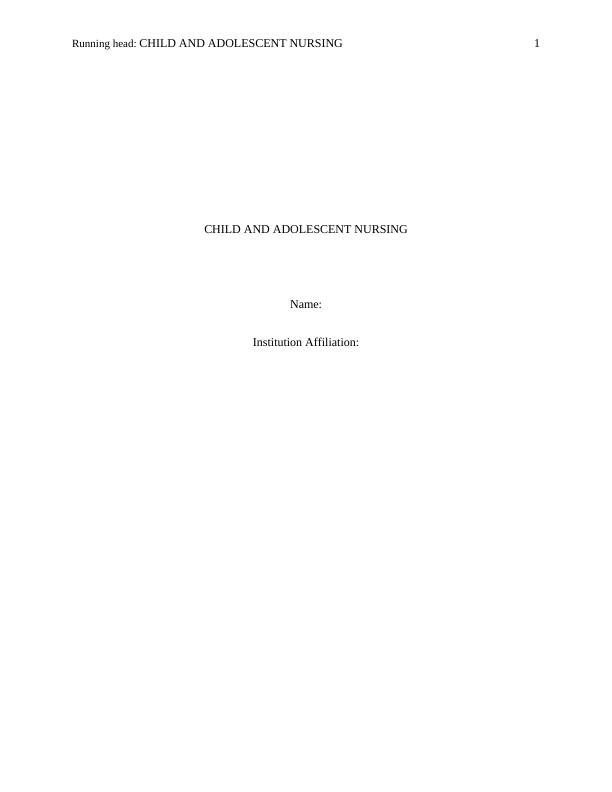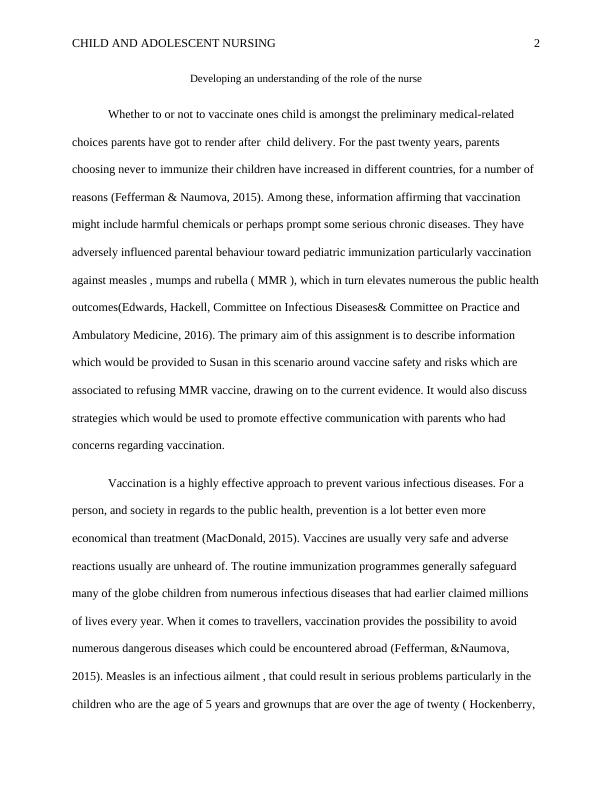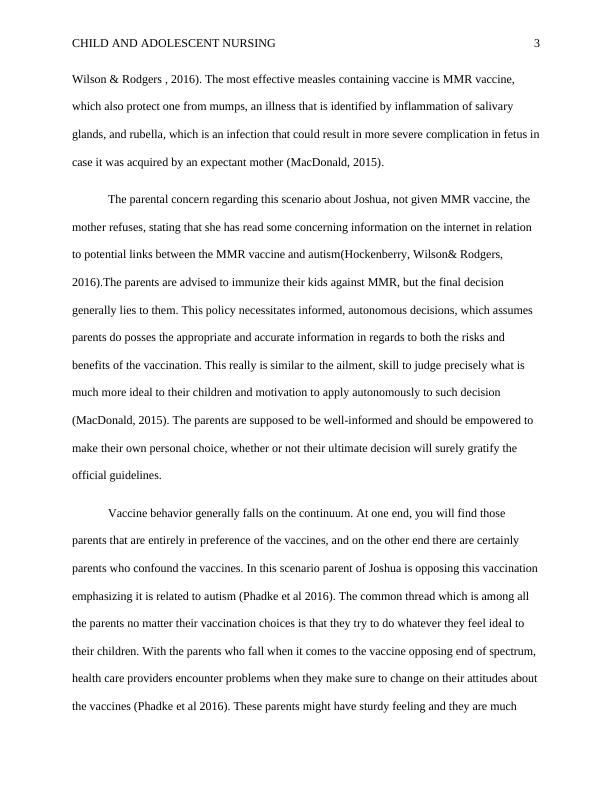Understanding the Role of Nurses in Addressing Vaccine Hesitancy in Children and Adolescents
Explore the case of a parent who is reluctant to vaccinate her child and explore the current evidence regarding vaccine safety.
8 Pages2432 Words444 Views
Added on 2023-06-08
About This Document
This article discusses the role of nurses in addressing vaccine hesitancy in children and adolescents. It provides information on the safety and effectiveness of vaccines, particularly the MMR vaccine, and strategies to promote effective communication with parents who have concerns about vaccination. The article emphasizes the importance of vaccination in preventing infectious diseases and the need for healthcare providers to build trust with parents to address vaccine concerns.
Understanding the Role of Nurses in Addressing Vaccine Hesitancy in Children and Adolescents
Explore the case of a parent who is reluctant to vaccinate her child and explore the current evidence regarding vaccine safety.
Added on 2023-06-08
ShareRelated Documents
End of preview
Want to access all the pages? Upload your documents or become a member.
Evidence of Immunisation Safety
|12
|2803
|25
Paper on Relation between the Mumps Measles and Rubella Vaccine
|8
|1863
|54
Vaccination Factors that have Contributed to the Reluctance of Jenna and Chris Smith
|7
|1465
|400
Health Care Management | Assessment
|5
|837
|15
Matern Child Health Journal
|7
|5431
|12
VALUE FOR VACCINE
|1
|1553
|19



